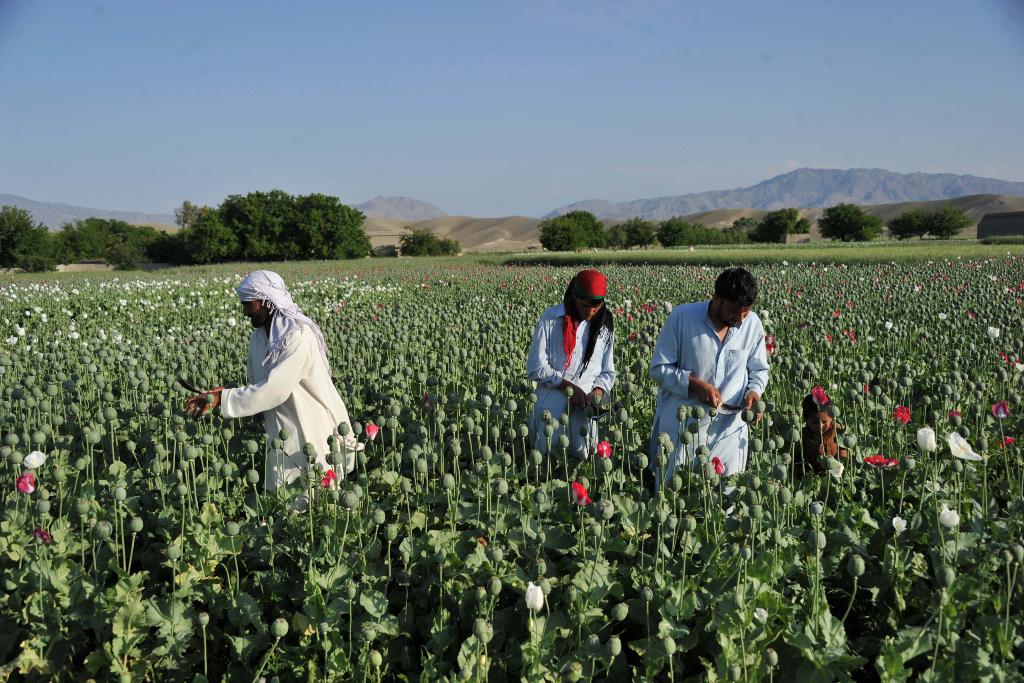The CIA has paid tens of millions of dollars to the Afghan president’s office over the last decade
Afghan farmers work in their poppy field in Khogyani District of Nangarhar province on April 29, 2013.
The CIA has been dropping off hundreds of thousands to millions of dollars in cash at the offices of Afghan President Hamid Karzai every month or so since January 2003, current and former advisers to Karzai told Matthew Rosenberg of The New York Times.
And instead of translating into influence for the Agency, American officials told the Times, the tens of millions of dollars in "ghost money" has undermined U.S. strategy by fueling corruption and empowering warlords.
“The biggest source of corruption in Afghanistan was the United States,” one American official told the Times.
The CIA still makes the payments, Rosenberg reports. And the money is still used to pay off warlords and politicians, many of whom have ties to the drug trade or even the Taliban.
A glaring example of the payments conflicting with U.S. interests is the case of President Karzai's half brother, Ahmed Wali Karzai.
Ahmed Karzai, a suspected trafficker of narcotics including opium, was paid by the CIA from 2001 until his assassination in 2011.
He became the Agency's "landlord" when he began renting the former compound of Taliban founder Mullah Mohammed Omar to the CIA and American Special Operations troops.
The compound was the base of the Kandahar Strike Force, a militia run by Ahmed Karzai and used by the CIA to combat militants.
According to internal emails from the U.S. private security firm Stratfor, in 2007 the DEA was investigating Ahmed Karzai for being a "major narcotics trafficker."
The emails say that the DEA has was told to back off their investigation by the White House and CIA, despite DEA concerns that the drug money was fueling terrorism.
From Stratfor vice president of intelligence Fred Burton:
DEA is seeing a direct nexus between terrorism and narcotics in Afghanistan with narcotics sales being used to fund jihadist operations.
Since the lifting of the Taliban opium ban after the 2001 invasion, opium production in Afghanistan increased from supplying 70% of the world's illicit opium to 92% in 2008. Production rose by about 61 percent from 2010 to 2011 and continued to rise in 2012 as U.S. troops patrolled the poppy fields.
In 2010 the U.S. arrested Mohammed Zia Salehi, Hamid Karzai's administrative chief, in connection with an investigation linking Afghan cash smuggling, Taliban finances, and the opium trade.
Rosenberg notes that President Karzai had Salehi released within hours, and the CIA subsequently helped persuade the Obama administration to back off its sprawling anti-corruption push.
More from our partner, Business Insider:
Business Insider: Chinese media outlets are slamming the country's CEOs over pay, but they've got nothing on American execs
Business Insider: Pending home sales accelerate in March and beat expectations
Business Insider: The New York Jets cut Tim Tebow
Business Insider: Could Facebook end up like MySpace?
Business Insider: Markets are rallying and Italy is on a tear
